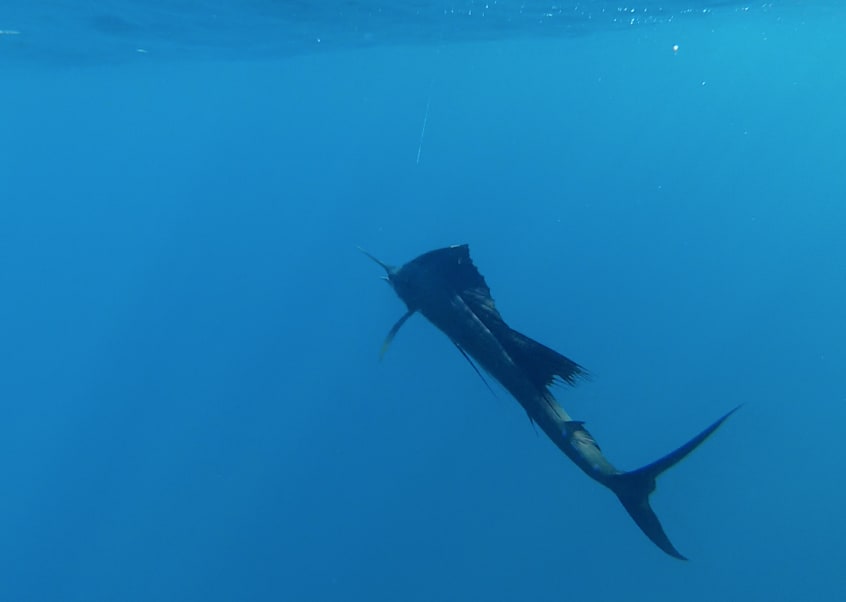Good news for the future of Costa Rican sportfishing: Some very dedicated people, including the nonprofit Billfish Foundation (www.billfish.org), are fighting for new regulations for the fishing industry and have made substantial progress that will lead to some changes for the commercial fishing and sportfishing industries.
On the sportfishing side, there will be no more “hero shots” with big fish being pulled from the water for photos. New scientific data show that pulling big fish out of the water for photos can overstress the fish and damage it internally. This includes sailfish, marlin, big tarpon and big roosterfish.
A good fish photo is important, but it’s not worth killing the fish. This year, we anglers must all change the way we take our fish pictures.
For years, charter boats have been reducing the number of sailfish and marlin pulled out of the water. Most captains will pull only one sailfish out of the water per customer, if requested, so they can get that good fish picture, and prefer not to pull marlin out of the water, not only for the safety of the fish but also for the safety of angler and crew – an upset 300-pound marlin can do a lot of damage if it gets loose in the cockpit.
So, it is now recommended that anglers get a “release shot” instead of the “hero shot” with their catches. I asked old hand Todd Staley of Crocodile Bay Resort in Puerto Jiménez, on southwestern Costa Rica’s Osa Peninsula, how his operation will be taking fish photos from now on. He replied: “I will have an extra pair of gloves onboard, and after the fish is calm – we don’t want any Gringo shish kebabs – the client can lean over and grab the bill and lift the head for a quick photo.
“I will give the customer the option of releasing the fish with the crew’s instructions (giving that warm, fuzzy feeling of turning the fish loose) or passing the fish back to the crew for them to make the release.
“It is almost a sure bet a marlin will die if dragged onboard, and it is very stressful for sailfish. It needs to be explained to customers that leaving the fish in the water is best, and I am hoping sportfishing crews abide by this. We are working hard for the future of this sport in Costa Rica, and everyone needs to do his part.”
We have come a long way since the days when sailfish were killed and hung on a hook at the dock for a photo. The “release photo,” like the mandatory use of circle hooks, is something simple that we can all do to ensure a safe and healthy release of our big fish.
As captains, mates and anglers, we need to embrace these changes in how we take our fish photos so we can all play our part in preserving the future of sportfishing in Costa Rica.






